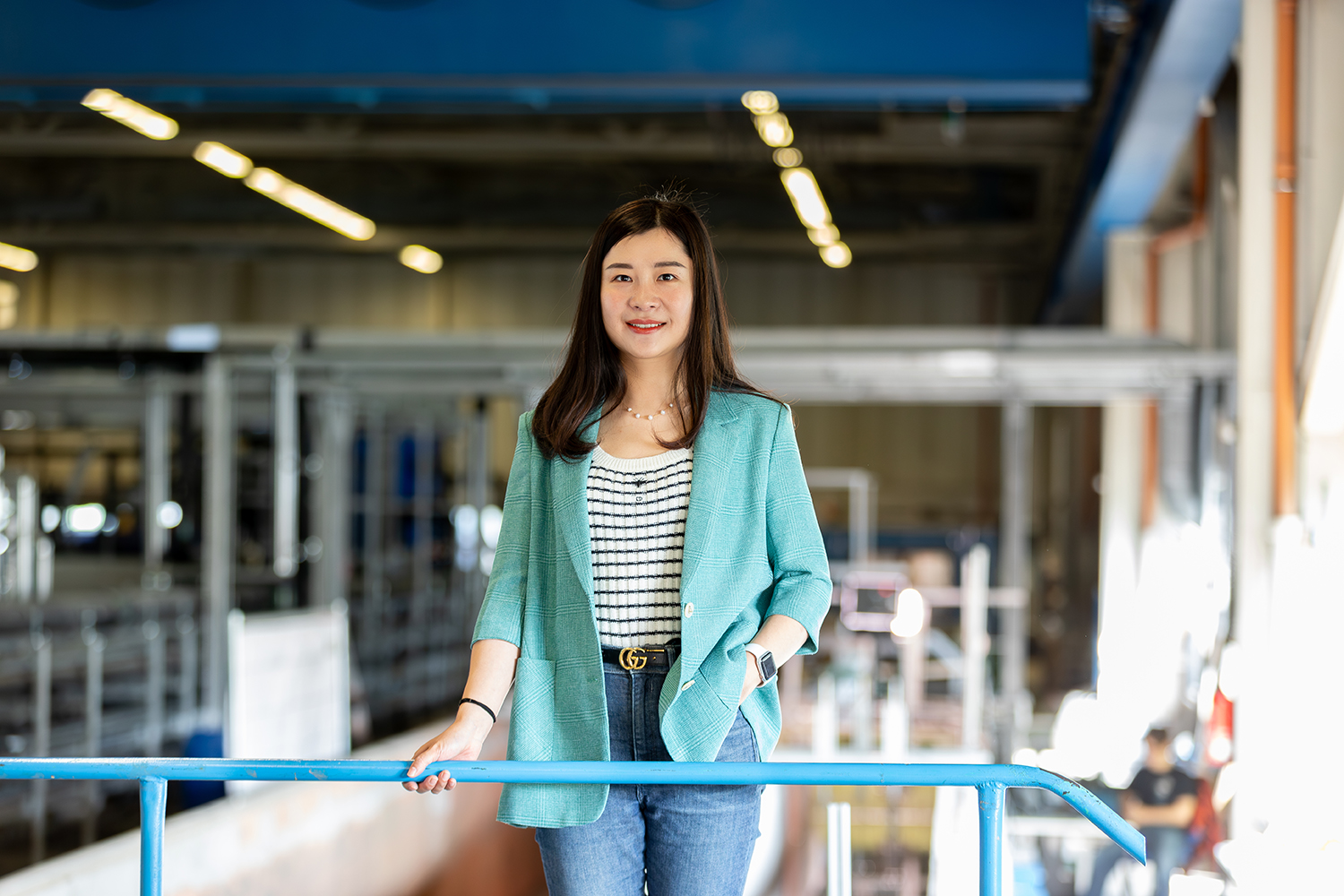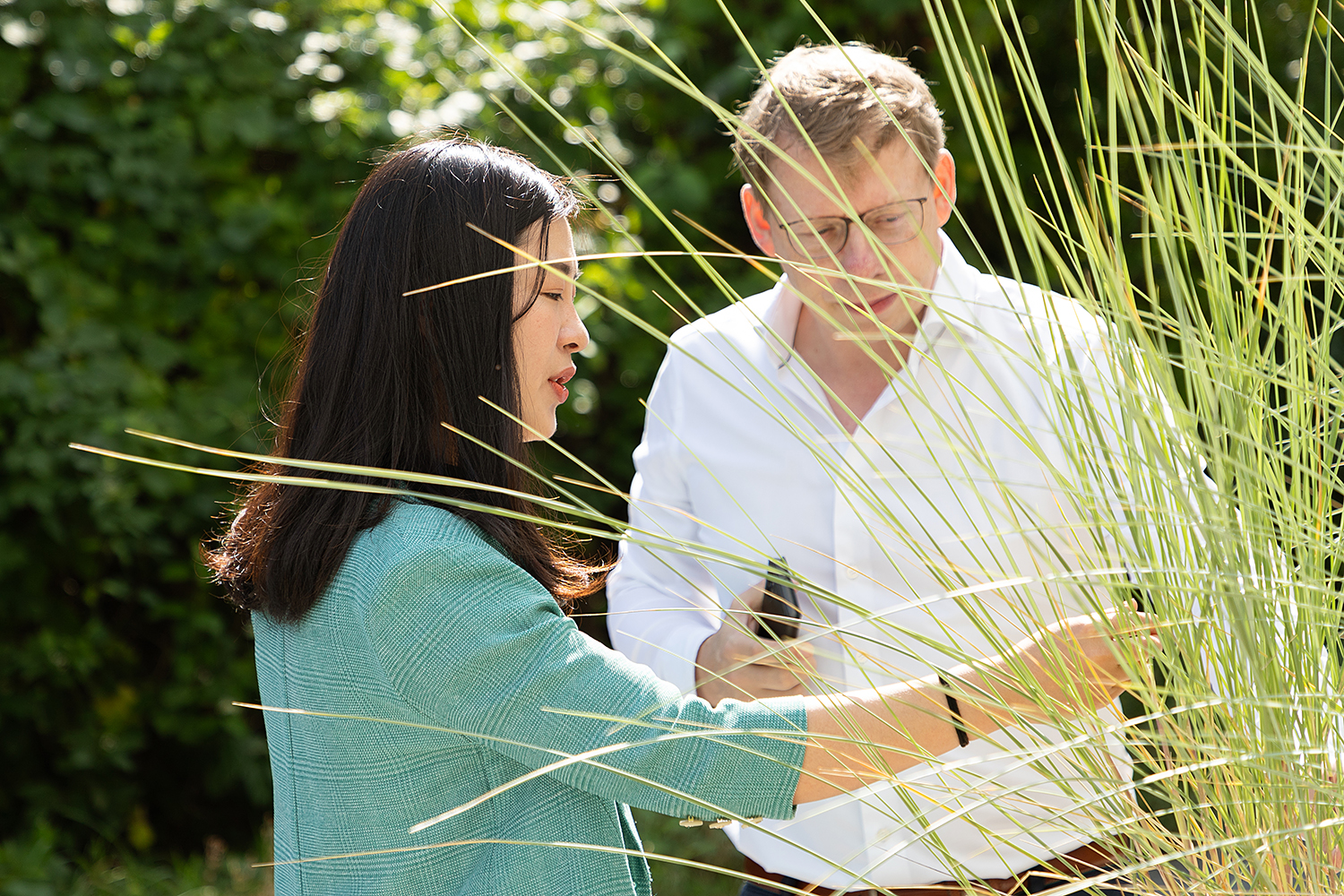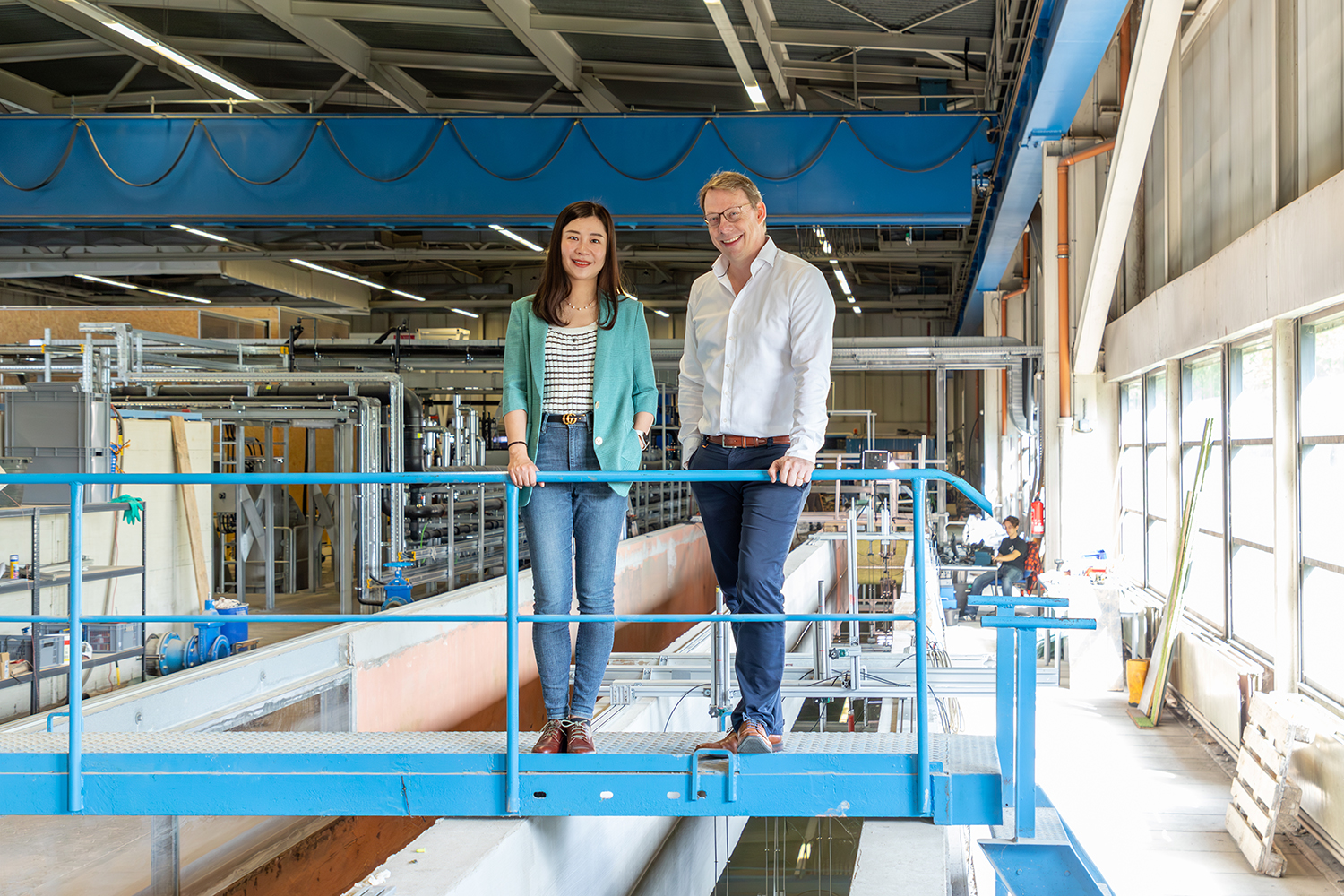Coastal protection between Germany and Singapore Humboldt Fellow Dr Pearl Li Yuzhu conducts research at the Leichtweiß Institute for Hydraulic Engineering and Water Resources
Coastal engineering is facing major challenges in the face of climate change and rising sea levels. Dr Pearl Li Yuzhu from the National University of Singapore wants to use her expertise to help develop solutions for adapting to climate change and for coastal protection. To this end, the scientist has now come to Braunschweig. As a research fellow of the Alexander von Humboldt Foundation, she will be studying the influence of oyster reefs on waves and currents and soil liquefaction around wind turbines at the Leichtweiß Institute for Hydraulic Engineering and Water Resources at TU Braunschweig.

Humboldt Fellow Dr Pearl Li Yuzhu is a guest at the Leichtweiß Institute for Hydraulic Engineering and Water Resources. Picture credits:: Kristina Rottig/TU Braunschweig
For Dr Pearl Li Yuzhu, the Humboldt Fellowship for Experienced Researchers is both a prestigious award and, above all, a unique opportunity to conduct research on site together with scientists from the Department of Hydromechanics, Coastal and Ocean Engineering at the Leichtweiß Institute for Hydraulic Engineering and Water Resources (LWI). “The scholarship gives me the opportunity to work closely with Professor Nils Goseberg and his team,” says a delighted Pearl Li Yuzhu. “TU Braunschweig has a long tradition and a very good reputation in coastal and marine research. I would like to take the opportunity to learn from the researchers here. Singapore and Germany with their coasts, like many other countries in the world, are confronted with climate change and rising sea levels. We engineers hope that we can find solutions to adapt to the problems of climate change and protect our coasts from flooding and damage.”
As the Alexander von Humboldt Foundation’s Henriette Herz Scout, Professor Goseberg will be able to select three international scientific talents from the fields of coastal engineering and maritime engineering for a fellowship. “The Alexander von Humboldt Foundation’s scouting programme is a unique and exciting opportunity to identify international talent and provide targeted support by organising the scholarship as a direct award. This opens up new avenues, especially for female researchers, who often have greater difficulties in succeeding in a competitive environment and under difficult mobility conditions,” says Professor Nils Goseberg.
Three research stays at the TU Braunschweig

In her research, Pearl Li Yuzhu focuses on processes on both the sea surface and the bottom processes. Picture credits: Kristina Rottig/TU Braunschweig
In her research, Pearl Li Yuzhu focuses on processes on both the sea surface and the bottom processes, such as coastal breaking waves, interactions with coastal structures, sediment transport and so-called soil liquefaction, which can lead to coastal erosion and affect the stability of structures such as the foundations of wind turbines and quay walls.
Over the next three years, Pearl Li Yuzhu has planned a total of three research stays in Braunschweig, during which she will collaborate with Professor Goseberg on different projects. During her first stay, for example, she focussed on the topic of soil liquefaction around marine structures, such as the gravity anchor of a floating wind turbine. The scientist intends to use the data from an experiment in the GWK+ large wave current flume in Hanover to calibrate and validate numerical models developed by the LWI researchers and the team from Singapore.
Oyster reefs as natural coastal protection
Seabed surfaces overgrown with mussels are the focus of her second research visit. The LWI is investigating the spread of the Pacific oyster in the German Wadden Sea, which has a strong influence on waves and currents. Pearl Li Yuzhu wants to find out more about this. Because: “In Singapore, there is a strong interest to explore nature-based coastal protection such as oyster reefs. We can build on our joint experience here, both in experimental and numerical modelling.”

Dr Pearl Li Yuzhu will be working on joint research projects with Professor Nils Goseberg and his team. Picture credits: Kristina Rottig/TU Braunschweig
In addition, the scientist will take a closer look at the influence of marine growth covering floating and fixed offshore wind turbines: “My group in Singapore will develop numerical model to improve the accuracy of the predictions of environmental loads on marine growth covered structures, while Prof. Goseberg’s group is devising new experimental setups being tested in the newly constructed saltwater-wave-current flume in Braunschweig”
Great working atmosphere at the Leichtweiß Institute for Hydraulic Engineering
The research fellow is just as enthusiastic about the working atmosphere at the LWI as she is about the support from the team and the administration. “I am particularly grateful for the flexible childcare at the university, which takes a lot of pressure off us as a family,” emphasises Pearl Li Yuzhu. The move to Germany initially presented the young researcher with a number of challenges. The language barrier in particular was an initial concern, but this quickly turned out to be unfounded: “Everyone was very helpful and most people speak English or are willing to help me translate.” Moving with her eight-month-old baby, on the other hand, was a bigger challenge. Despite the complex registration procedures and the many organisational tasks in the first month, she and her family overcame this hurdle.
In addition to her research, Pearl Li Yuzhu was also able to explore Braunschweig. “It’s a charming city with beautiful parks and historic buildings,” she says. Her first two-month stay is now over, but she is already looking forward to her return to TU Braunschweig.
